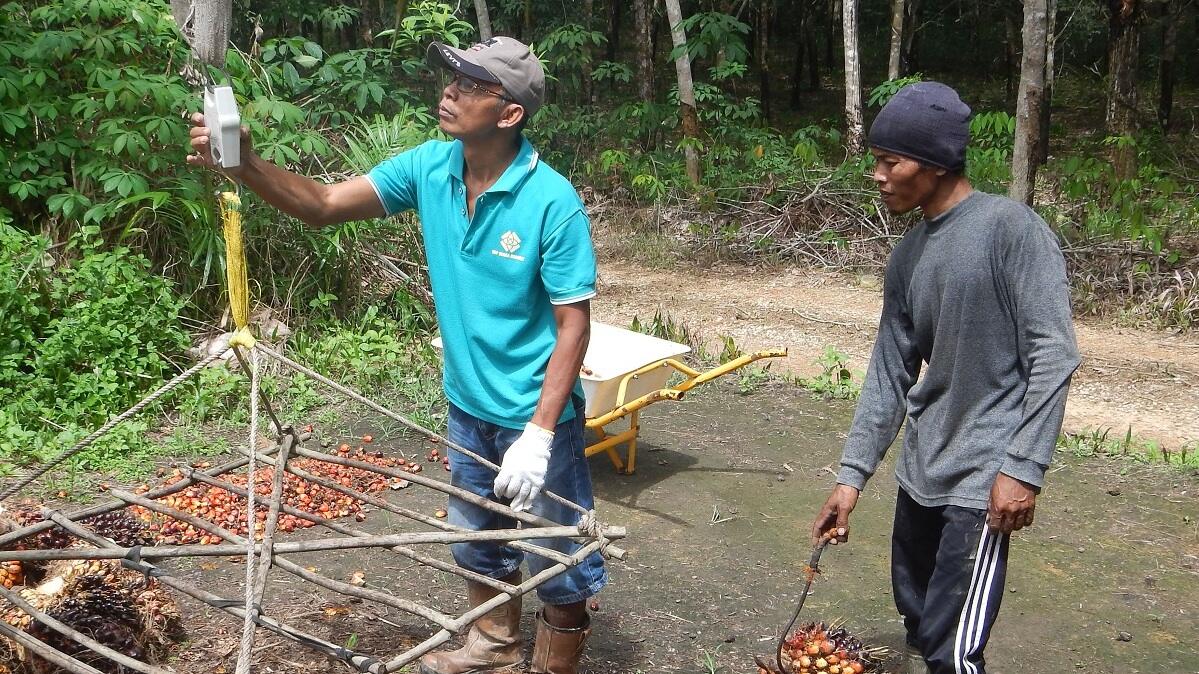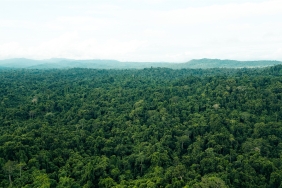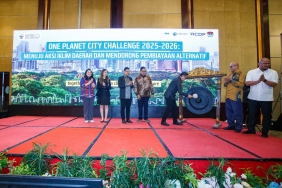ONE YEAR PALM OIL MORATORIUM DEVELOPS STRATEGIC IMPLEMENTATION STEPS
Jakarta, October 10, 2019 - On September 19, 2018, the President of the Republic of Indonesia Joko Widodo issued a policy related to the palm oil industry, the policy which was later titled Presidential Instruction No.8/2018 on the Postponement and Evaluation of Palm Oil Plantation Licenses and Improvement of Palm Oil Plantation Productivity. Recognizing the importance of overseeing the implementation of the Presidential Instruction, WWF-Indonesia Foundation (WWF-Indonesia) in collaboration with KOMPAS held a public discussion entitled "A Year of Palm Oil Moratorium, Intensification without Expansion" in Jakarta on October 10, 2019. The speakers were Assistant Deputy of Forestry Governance of the Coordinating Ministry for Economic Affairs Dr. Prabianto Mukti; Director of Annual and Refreshing Crops of the Directorate General of Plantations Ir. Irmijati Rachmi Nurbahar; Executive Director of the Indonesian Palm Oil Association (GAPKI) Ir. Mukti Sardjono; and Director of Communications of AURIGA Nusantara Foundation Syahrul Fitra.
There are four important points in Presidential Instruction No.8/2018, namely postponing the issuance of new licenses, reviewing licenses that have been issued, saving land that has been licensed but has not been utilized or abandoned, and ensuring that the fulfillment of the supply of oil palm fruit bunches for processing comes from increasing plantation productivity and comes from land that is clean and clear.
.
But after a year, the implementation of this Presidential Instruction is still considered not optimal. The government has consolidated data on palm oil plantations in Indonesia, hoping that this data will become a reference for relevant parties to implement the palm oil moratorium. If improvements are not made, the palm oil moratorium will not reach its goal. In addition, the possibility of new land clearing that is misused will continue to occur.
Assistant Deputy of Forestry Governance of the Coordinating Ministry for Economic Affairs Prabianto Mukti said, "the existence of differences in data on the size of oil palm plantations is a challenge in implementing Presidential Instruction No.8/2018. We realize that implementing this Presidential Instruction cannot be done without accurate data that can be accepted by all parties. Currently, the government continues to reconcile the national palm oil cover map. This is needed to integrate data in the One Map Policy (KSP) which will later become the basis for decision-making related to oil palm plantations."
December 2018, the President of Indonesia launched the One Map Policy Geoportal, a system that provides one accurate and accountable map as a reference for development planning, infrastructure provision, issuance of licenses and land rights, and various national policies. KSP is designated as a single public portal containing synchronized and digitized data and information on land use, cover and boundaries, concessions and other thematic layers. The KSP is expected to minimize the problem of overlapping land use.
"Oil palm plantation industry players need legal certainty and data to do business. Currently, there are still overlapping licenses, especially business use rights and forest areas. These unsynchronized licenses can trigger debates and conflicts. This does not provide certainty in investing and keeps the target of increasing productivity away. GAPKI appreciates Presidential Instruction No.8/2018 because it will help improve governance and increase productivity, especially for smallholder oil palm plantations. Hopefully, the implementation of this Presidential Instruction will correct the existing omissions," said Indonesian Palm Oil Association Executive Director Mukti Sardjono.
In addition to being a means of evaluation, this public discussion aims to disseminate information, data, and the challenges of implementing the Presidential Instruction to connect one institution with another or one policy with another. In guarding the palm oil moratorium, which is only three years old, the participation of various institutions is needed to support the government. The biggest challenge that needs to be resolved immediately is how to typify the problem of palm oil in forest areas, and make this momentum to reduce the rate of extensification of palm oil land and implement intensification.
"Moratorium is a good first step but it is not enough if it is limited to lip service. The moratorium must be fully implemented, which means that productivity is intensified, expansion is stopped, sustainable practices must be used as guidelines," said WWF-Indonesia Director of Policy and Advocacy Aditya Bayunanda.
The discussions, studies, and coverage organized together with Kompas today and previously will be poured into a book containing recommendations for strategic steps to implement the Presidential Instruction by various parties. The results of these recommendations are planned to be submitted to the President of the Republic of Indonesia and the Working Cabinet Ministers for the 2019-2024 period as a reference to complement the government's strategy considering that the moratorium still has two years left.
"The palm oil industry is both a necessity and an obligation for us to ensure optimal productivity, carried out with sustainable and conflict-free practices. In addition to continuing to encourage governance through control of policy implementation in favor of the palm oil moratorium, WWF-Indonesia also took the initiative to put the results of this public discussion in a book. Later, this book will be submitted to the President of the Republic of Indonesia and the Minister of the Working Cabinet for the 2019-2024 period as a strategic recommendation for the implementation of the Presidential Instruction in the remaining two years," concluded WWF-Indonesia Director of Policy and Advocacy Aditya Bayunanda.
- COMPLETED -
For more information, please contact:
- Karina Lestiarsi, Media Relation Specialist WWF-Indonesia (Email: Klestiarsi@wwf.id | Hp: +62 852-181-616-83)
About WWF-Indonesia
WWF-Indonesia is an independent national organization and part of WWF's global network. Starting work in Indonesia in 1962 with a study of the Javan rhino in Ujung Kulon, WWF-Indonesia is currently active in 34 fieldwork areas in 17 provinces ranging from Aceh to Papua. Supported by around 500 staff, WWF-Indonesia works closely with the government, local communities, the private sector, NGOs, civil society and the public at large. Since 2006, WWF-Indonesia has been supported by around 100,000 domestic supporters. Visit www.wwf.id





